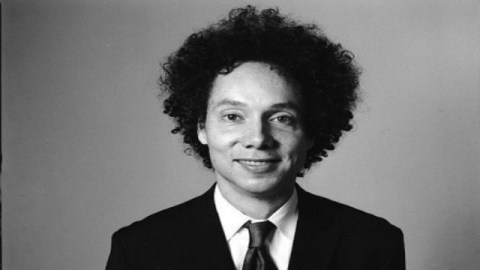The Secret of Malcolm Gladwell’s Success

What’s The Big Idea
We have a tendency to think of greatness and success as synonymous, when in fact they’re only very loosely related. The fallacy is easy enough to understand through an evolutionary lens – great ideas that vanish into obscurity don’t propagate, and and on a very primal level we recognize (and fear) failure to propagate as failure of the most absolute kind. It carries the whiff of extinction.
But as Malcolm Gladwell – author of four New York Times bestselling books – points out, ideas that succeed are rarely the result of some brilliant master plan on the part of their creators – some prescience about what the world needs right now. Usually, he says, they’re the product of someone’s obsessive, idiosyncratic pursuit of what they love. But for every Malcolm Gladwell, sought-after worldwide for speaking engagements, there are hundreds of equally brilliant writers and thinkers nobody will ever read.
We want to ascribe intentionality and blame for success and failure, then study them for blueprints. But Gladwell says he’s always found it more productive to follow his own curiosity without worrying too much about whether or not the world will reward him for it. Indeed, he believes, your chances of being rewarded may be inversely proportional to the amount of time you spend trying to figure out the magic formula for success.
[VIDEO] The secret of Malcolm Gladwell’s success? Not worrying about success.
What’s the Significance?
If you’re in doubt about the role serendipity plays in raising up an Albert Einstein or a Picasso, consider the curious case of Thomas Wolfe. His Look Homeward, Angel, among the most critically acclaimed novels in American history, almost never got published. In 1927, the original manuscript appeared in the office of Maxwell Perkins, an editor at Scribners. It filled six cardboard boxes and was a non-linear, experimental attempt to capture “the strange and bitter magic of life.” The writing was powerfully poetic – a bold new voice – but the book was a sprawling, tangled mess.
Any other editor would have passed on the project as hopelessly unmarketable. Had the book been published in its original form, it would likely have been dismissed by critics as promising yet unreadable. But Perkins saw something in it, and was an editor of unusual energy and creativity. After a protracted, fierce (yet good-natured) battle with Wolfe over every word, sentence, and paragraph, he completely restructured the novel and cut the manuscript by 66,000 words, co-producing a literary classic and launching Wolfe’s career.
Look Homeward, Angel was the outpouring of a passionate, obsessive soul. Its genius lay in Wolfe’s ability to translate the ebb and flow of his powerful intellect into a new kind of lyrical prose – or perhaps more accurately, in his inability not to. A more market-savvy author might have crafted a better-constructed book on her own, but it wouldn’t have possessed the idiosyncratic beauty and power that makes Wolfe’s epic endure.
Gladwell’s advice is refreshing in this relentless era of data-driven strategy: follow your bliss and resounding success will either follow or it won’t. In either case, you’ll be doing what you love.
Follow Jason Gots (@jgots) on Twitter





